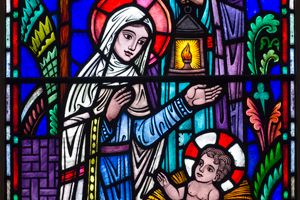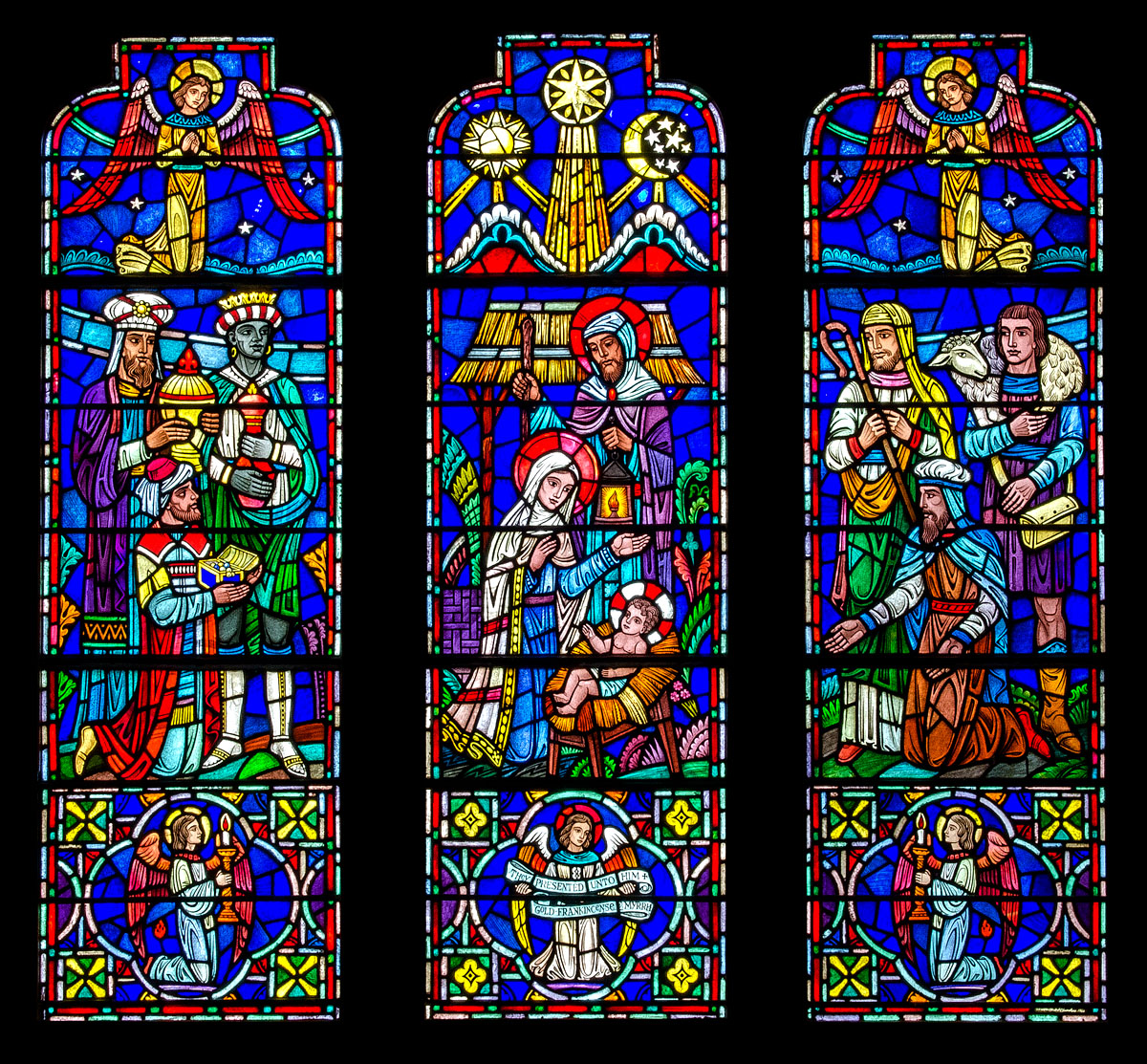Home > Advent Blog 2022
“It does not matter how small…”
December 14, 2022

Isaiah 9:8-17 | 2 Peter 2:1-10a | Mark 1:1-8
Yikes, what readings today, false prophets, cities falling, thankfully followed by John’s message of hope. I am about to invite your company through some darkness. If you come, I promise there is lots of light at the end of this way-too-long post.
Two years ago this week I was quarantined in my home alone. Through months working with patients with COVID-19, breathing through scarce and re-used protective gear and scrubbing skin to soreness, I had escaped infection. Now with no positive patients, having been with only one person without a mask for weeks… a positive result from a routine test. I was asymptomatic for the next two days. Then the worst symptom hit – anger. Given reflection time I hadn’t had before, I became intensely angry at people, especially those in positions of public trust, who were downplaying the danger and scope of the pandemic, misleading a confused public, twisting evidence out context, stirring up fear, spreading lies, at the expense of hundreds of thousands of human lives. Scientists, doctors, and medical workers, bound by established principles of ethics to consider the future effects of their actions, worked to exhaustion to arm us with information we needed to save people. Then I saw television commentators and opportunistic politicians, exhibiting no such principles, mock and cloud that information with sarcastic glee from the comfort of their newly-tricked-out home studios. How could they do this? Were the people I and my colleagues had struggled to help, seen suffer, seen die, seen permanently injured, just imaginary to them? Were the lost family members of my colleagues infected doing their jobs just numbers to them? I was so angry at those I saw as equivalent to false prophets, pointing vulnerable people down deadly paths. It was just unconscionable. I stopped short of suggesting how, but I admit I prayed for God to, somehow, stop them.
Among my favorite books is “The Screwtape Letters”, by C.S. Lewis. If you have never read it, I promise there is light at the end of this paragraph. Screwtape is a demon, writing instructive letters to his nephew, a demon in training, about how to turn humans away from God. It’s very dark at first glance. But out of Screwtape’s frustrated ramblings emerges one of the most beautiful portraits of God’s relationship with humans I have ever read or heard. As he teaches his student how to separate humans from God, Screwtape teaches us, if we’re willing to take the 180-degree view, how we might foil his efforts and draw ourselves and each other closer to God.
I’m paraphrasing for time and space, but Screwtape emphasizes how incredibly vulnerable humans are to suggestion, when we see others as “imaginary people”. How easily we can act based on who we imagine people to be, rather than who they are. People and categories of people we have never encountered always start out imaginary. Without effort to meet them, they become or remain merely stereotypes. He tells us people we know and love can gradually become “imaginary” too, when we imagine, instead of asking, what they think, what they believe, what their motivations are, even imagining with the best of intentions. He tells us that once others become imaginary, we are vulnerable to every speculation we then fail to verify with the real person. Vulnerable to the buildup of each seemingly tiny annoyance, to pervasive nudges (enter the false prophets) toward believing people know less than us, try less hard than we do, don’t understand us, aren’t considering our needs, want to take advantage of us, intend us harm. Imaginary people are easier to pity without compassion, easier to ignore, easier to discount, easier to joke about, easier to blame, easier to fear, easier to hate.
And, he explains, when real people, little by little, are replaced by imaginary versions in our heads, we not only can’t see them, we can’t see the God who sees them, loves them and greets us through them. It is all too easy to be left with an imaginary version of God too. Screwtape says, “It does not matter how small the sins are, provided that their cumulative effect is to edge the man away from the Light and out into the Nothing. Murder is no better than cards if cards can do the trick. Indeed, the safest road to Hell is the gradual one”
But with a fresh look at his advice about the power of gradual, cumulative effects, he reveals a way to the light that is squarely in our hands; if we, even in the smallest way, reach out in unbiased love and faithful curiosity, little by little, people will become real to us. And once they are real, the imaginary portraits false prophets might paint wash away. We can make people real to us every time we pause and listen instead of guessing. Every time we ask “what is your story?”, “What do you hope for?” “What are you concerned about?”, and actually wait for the answers. Every time we answer a verbal attack not with a verbal defense, but with “please tell me more”, and actually listen. The things we imagined can be replaced by the things that really are – the things, good or bad, that truly matter. When we know our neighbors, we get to borrow the perspective of each other’s experiences, in addition to that bag of chocolate chips we needed after the store closed.
In the coming days, we celebrate gift of a “real” God – one who could be touched, asked, listened to, healed by, learned from, and sadly, made imaginary by fears and misperceptions, with terrible consequences. But he returned, arms outstretched. Love undaunted.
Two years later, I believe that Christ returns again, in us, each time we struggle to watch, listen, and connect with each other in genuine, unassuming love. I believe every time we make the effort to see the image of God in another person, and insist on trying to see our human brothers and sisters as God sees them, we can, with God’s help, help to see and cultivate their gifts, lift them up when they stumble, and protect them from harm wherever we are able. I know I will continue to make mistakes, be misled, and work my way back, become too fatigued to fight all the battles. But in these last two years I have also seen the great good that countless small kindnesses, offered consistently, relentlessly, tirelessly, by countless people, can do. I am comforted by reinterpreting Screwtape’s statement from the brighter side. “It does not matter how small the expression of Love, provided that the cumulative effect is to edge each other toward the Light”. Perhaps a castle is no greater than a manger when a manger can do what’s needed.
Sarah Curtis
Click to enlarge – The Nativity Windows at St. Luke’s Episcopal Church, East Greenwich, RI, in the South nave, were made in 1968 by Burnham Studios in Boston.
We are so pleased you have joined us online at St. Luke’s. And, we invite you to make a Special Christmas Gift Offering to help us continue our outreach efforts.



